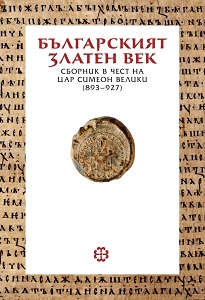
We kindly inform you that, as long as the subject affiliation of our 300.000+ articles is in progress, you might get unsufficient or no results on your third level or second level search. In this case, please broaden your search criteria.



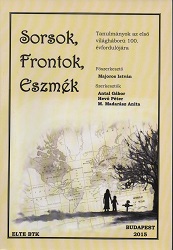
As to my personal project plan for the coming six years on the issue of present concern, I shall in the following present my hypothesis––a hypothesis which is about to take shape, while I am looking up for a moment from behind the heaps of books taken from my bookshelf. The reason why I shall submit my hypothesis at this stage is that I hope that you might prompt me––by expressing your appreciation or doubts to what you read––to advancing new perspectives and new ideas.
More...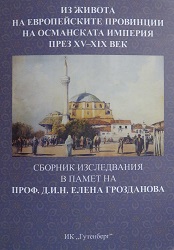
The paper presents in analytical way to Fund of the Ottoman documents about Mecca and Medina, kept in the collections of Oriental Department of the National Library "St St Cyril and Methodius". The documents are grouped in six main sections according to their content. The author presents in annotated form multiple documents of that fund. The paper includes an annex of the inventory of documents from fund Hijaz (Arabia).
More...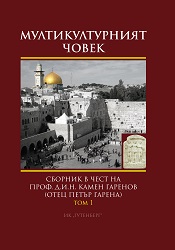
Eastern Roumelia received its fundamental law drafted by a specially European commission. It is quite a detailed document providing for all aspects of life of the Roumeli citizens. The Organic Statute of Eastern Roumelia defined the new political formation in the Balkans as a state of modern (for that time) bourgeois-liberal type. It had all the features of and independant state: its own government, a representative authority elected by the people and a national army. The sovereignty of the sultan was included in the Statute, but thanks to the efforts of Eastern Roumeli political figures, it soon became nominal, without any serious power in the region. Unlike the neighboring countries (the Ottoman Empire, the Principality of Bulgaria, Serbia, Greece and Romania) there was no legalized and preferred religion in Eastern Roumelia. All religious issues were placed in the hands of the religious communities and the state did not involve itself with them. The only condition was that they should not violate any of the laws valid to the region.
More...
Stefan S. Dobchev was a noted Bulgarian public figure, scholar and statesman. Even in his early years he established contacts with the Russian Slavic societies. At the end of the 19-th century and the beginning of the 20-th century, when the blocks in the future world war were formed, he became an active participant in the movement for unity of Slav peoples. The idea was that they should not be placed in a confronting position in the world military conflict that that was forming. Stefan Bobchev was one of the active organizers of the Slavic associations of the intelligentsia and other such estates. Stefan Bobchev stood out as an active organizer and political figure in the field of the struggle for Slavic unity. Until the end of his life, he remained a firm believer in the unity of Slav peoples.
More...
The paper aims to acquaint the readers with the exceedingly active multifarious activity of Queen Eleonore in the field of charity and philanthropy in Bulgaria, naturally related to the political, cultural and economic life in the country in the first years of the 20-th century, marked as they were by the struggle for national unification. The subject is researched for the first time, mainly on the basis of Bulgarian sources and the till sparse contemporary studies dedicated directly to the life and work of Queen Eleonore in Bulgaria and Europe in the field of charity. For the first time, the paper follows the appearance of the new queen in Bulgaria's social, political and cultural sphere: it marks out the parameters of action in the organization of charity in this country, as well as the first more widely advertised Bulgarian efforts on the international field on the part of the Bulgarian Red Cross (BRC) and the 'Samaritan' society she founded, which also had supporters across the ocean. It also speaks of the participation of Queen Eleonore in organizing nursing activities in support of the army during the Balkan War in 1912-1913 and the opportunities she constantly sought and found to provide medical aid to the army and the front lines during the Second Balkan War and in the years of the Treaty of Bucharest, which was determental to the Bulgaria. Her preparations for the official visit across the ocean at the invitation of the United States government allows us to follow her extremely responsible attitude to this top-ranking diplomatic mission which she considered extremely important and which she undertook in the name of Bulgaria's welfare.
More...
At the beginning of World War I Bulgaria remained neutral, waiting for favourable conditions to engage in the conflict. Its supreme political objective was national unification. The Balkan countries were under constant pressure of the warring coalitions that were trying to win new allies. No Balkan state was a master of the situation and each was afraid about it's back. Because of its geographic location Bulgaria had a strategic position in the Balkans and its joining one of the warring groups would have ensured its geopolitical advantage in the war. In the "Bulgarian summer of 1915" both warring coalitions tried to attract the country on their side, offering territorial compensations or awards. Germany's promises were taken as more reliable by the politicians and Bulgaria entered World War I as part of the Central Powers. The choice of the great allies proved wrong. What was more, the manner of selection was also wrong - not according to the possibility of final victory, but according to the bidding in the territorial auction the profit of which would be lost at the loss of the war.
More...
The numerous and once monolithic Bulgarian national enclave, which had lived for many years in the Northern Pryazovia steppes, suffered numerous calamities. The first settlers arrived in the Pryazovia in the summer and fall of 1861 and the settlement was finally completed only in 1863. The social and economic development of the Bulgarian colonies was under the influence of the system of assimilation policy of the Russian Empire in respect to national minourities. In spite of the conditions, some Bulgarian port settlements quickly turned into commercial and industrial centres. The Bulgarian settlers upheld their Bulgarian national identity against the pressure of the assimilation policy mainly by preserving their native language, everyday life, customs, rites, feasts and folklore. In the first years of settlement the Bulgarians, particularly those in the Crimean Peninsula (Tauris) focused on and managed to achieve the opening of schools, at first only in several large settlements and later in all Bulgarian villages. In Preslav there was even a Central Bulgarian School subordinate to the Ministry of State Properties. Russia's assimilatory imperial policy also influenced the cultural development of the Bulgarian settlers. Official lay and church authorities were hostile to the language and some elements of the traditional life of Bulgarians under the pretext that they were heathen. Bees and other youth gatherings of definitely Bulgarian outlook were presecuted. Theatical and other amateur performances n Bulgarian were banned. At the same time, as loyal subjects, Bulgarians were active participants in World War I, in both recruitment and requisition. The Civil War did not pass by the Bulgarian settlements either. In some parts they formed armed bands and became part of the Free Territory organized along anarchist lines. At the establishment of Soviet power, the Ukrainian government was headed on three occasions by the Bulgarian Krustyu Rakovski. When Tauris became Soviet, the mayors, clerks and popular guards who enjoyed confidence in the Bulgarian settlements were s wept away. About then or more thousnad Bulgarians perished in the turbulent period of 1917-1922. The intelligentsia, which usually came from broad-minded affluent families, war a particular victim. The road to inveigle the authorities to grant some cultural (and partly administrative) "autonomisation" of the Tauris Bulgarians was opened with the establishment of a Bulgarian Bureau with the Central Commitee of the Communist Party (Bolshevik) of Ukraine and the publication of the 'Surp i Chuk' (Hammer and Sickle) newspaper in Bulgarian. The resistant against collectivization and the subsequent artificially induced famine in 1932-1933 cost the live of 20 000 Tauris Bulgarians. This also continued during the unprecedented Great Purge until Stalin's death in 1953 to which many Ukrainian Bulgarians fell victim.
More...
The life and work of the Turkish journalist and publicist M. N. Deliorman, packed as they are with plenty of valuable information about the history of the Turkish community and the political history of Bulgaria, deserve to be reached. After presenting the most important points in the biography of M. N. Deliorman, this paper discusses in great detail his reports from Bulgaria, which he sent as a correspondent in the course of nearly two months directly after the coup on September 9, 1944.
More...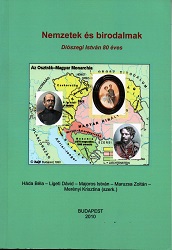
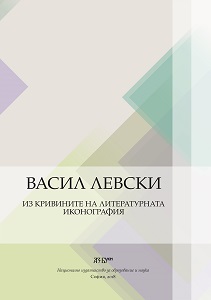
The paper examines for the first time the initial reception of Vasil Levski’s image and significance in the British daily and weekly press in the period 1867 – 1908. Commencing with a curious case of the first appearance of his name in the British press, the paper focusses further on press contributions reporting on a series of Bulgarian state ceremonies and commemorative events that, on the one hand, function as rituals of state iconisation of the Bulgarian national hero Vasil Levski and, on the other hand, exploit his high status for political purposes. In its final part the paper presents the first critical voices in the British press against the political instrumentalisation of Vasil Levski’s image in Bulgaria.
More...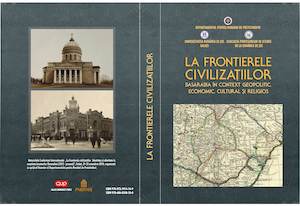
Anul 1940 a marcat apogeul efectelor politicii dezas- truoase duse pe plan intern şi extern de către guvernele impuse de regele Carol al II-lea, începând cu 10 februarie 1938. Între 26 iunie şi 7 septembrie 1940, România s-a aflat la cheremul puterilor europene care hotărau, prin acţiuni politice, diplomatice şi militare, soarta unui continent scăpat de sub controlul democraţiilor lumii (SUA, Franţa, Marea Britanie), hipnotizate parcă de personalitatea şi acţiunea unor lideri ai forţelor extremiste, naziste, fasciste şi comuniste.
More...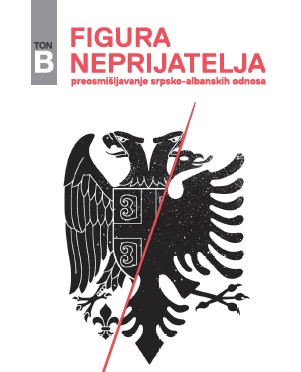
This paper aims to analyze the economic and political relations between Albania and Yugoslavia after the Second World War and their presentation on primary and secondary school history textbooks, by offering comparative approach of the way Albanian-Yugoslav relations are treated by different schools of historiography. On July 9, 1946 the Treaty of Friendship, Cooperation and Mutual Assistance was signed between the Albanian Prime Minister, Enver Hoxha and the Foreign Minister of Yugoslavia, Stanoje Simic. According to it, the two countries would take the necessary measures to ensure their independence and territorial integrity in case of aggression. They engaged to collaborate for the protection of international peace and security in conformity with the principles of the United Nations and confirmed their friendship by furthering the economic and cultural cooperation. The textbooks authors described the bilateral relationship as a result of the political intentions of Beograd to turn Albania into the seventh republic of Yugoslavia. It was perceived as “the other” in regard to Yugoslav efforts to exploit the weakness of the Albanian state and the risk of domination by a foreign power, claiming to represent it diplomatically. The inclusion of Albania in the Yugoslav Federation was argued in favor of solving the difficult problem of ethnic Albanians in the Yugoslavian state. Tito insisted on the impossibility to recognize the rights of Kosovo to self-determination because of the strengthening of Serb reaction. Due to the Yugoslav pressure, the Albanian leadership under the direction of Enver Hoxha was declared against the unification of Kosovo and Albania. History schoolbooks of both socialist and post-socialist period described the deterioration of the bilateral relations when the Albanian delegation headed by Enver Hoxha and the Soviet government ended an agreement in Moscow for the development of agriculture and industry and Albania received a Soviet loan. The Yugoslav leadership accused the Central Committee of the Albanian Communist Party of the anti-Yugoslav position, putting under pressure the government of Tirana. But it was the information about the Soviet Union Central Committee’s letters, criticizing the Yugoslav leadership for its domestic and foreign policy in deviation from the Marxist principles that helped the Albanian government deal with the pressure of Yugoslav authorities. It adopted unanimously the resolution of the Information Bureau of the Communist Parties, which broke off the Yugoslav-Albanian diplomatic relations in 1948 and shifted to the pro-Soviet orientation of the Albanian government.
More...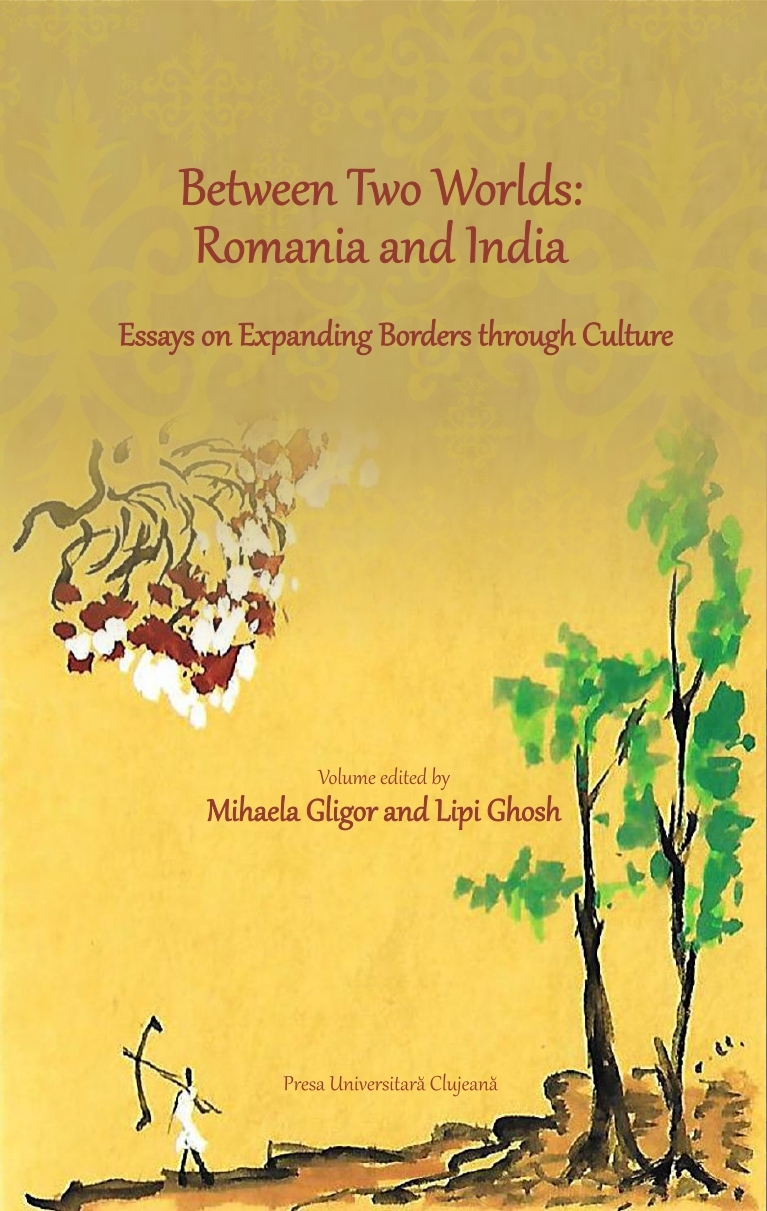

Since the commencement of colonial modernity in India, English, French, and German literature and philosophy have influenced Indian literature. Along with these three major literary spaces, authors also studied new European literature, particularly that of the former USSR republics and small European nations. Translations of literature from Romania, Hungary, Ukraine, the Czech Republic, Finland, Sweden, Denmark, and many more nations have begun to appear frequently in Bengali magazines since the second decade of 20th century. The Bengali literary canon also was being reshaped by such translations and Europe was redefined beyond the established colonial map, as translation appeared as a new cartography. The literary canon of the colonisers was seen as a dominating literary source and the literature of such minor nations was alternative to those. Additionally, Indian minds were attempting to comprehend various European perspectives on World War- I and II at the moment of the shattering of the nations. Amita Bhose, a well-known translator, spent her life translating from Bengali and Sanskrit to Romanian and Romanian into Bengali and created an emotional bond between Romania, her Bengali as well as Indian heritage, and herself. This paper argues Amita Bhose and her works are attached to an emotional bond that causes a translator to find a new home in the world, and a translator may be regarded best as a cultural ambassador. Amita Bhose through her works from and into Bengali and Romanian bridges between two nations and produced a generation of students who essentially become comparatists in various capacities. An international initiative of an individual brought a new dimension in imagining world literature from a particular location and such paradigmatic practices can be argued as an alternative way of doing a non-anglophone, non-canonical literary comparison
More...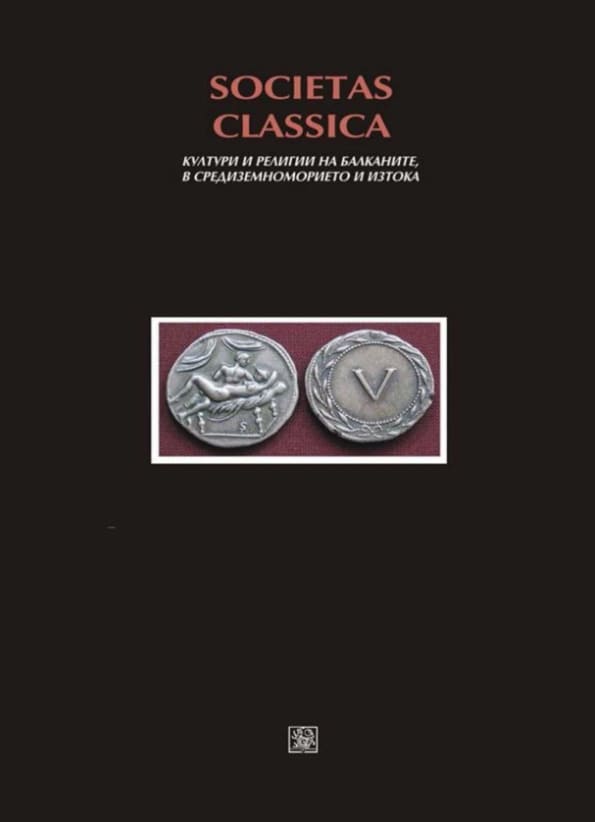
Many authors consider the 1980s as the time of the “Second Japanese miracle”. The decade has its tops and drops and has a long-term impact on Japanese socio-economic, political and cultural life. Thanks to the intensive implementation of the advances in scientific and technological progress and energy saving, Japan has managed to move from industrial to post-industrial society. The desire of the young Japanese to feel different, more special, their new musical preferences lead to the shaping of many subcultures that influence fashion, design, and music trends not only in Japan but also abroad. The development of animations and comics makes popular not only their creators but also many composers, performers and Japanese culture as a whole.Many authors consider the 1980s as the time of the “Second Japanese miracle”. The decade has its tops and drops and has a long-term impact on Japanese socio-economic, political and cultural life. Thanks to the intensive implementation of the advances in scientific and technological progress and energy saving, Japan has managed to move from industrial to post-industrial society. The desire of the young Japanese to feel different, more special, their new musical preferences lead to the shaping of many subcultures that influence fashion, design, and music trends not only in Japan but also abroad. The development of animations and comics makes popular not only their creators but also many composers, performers and Japanese culture as a whole.
More...